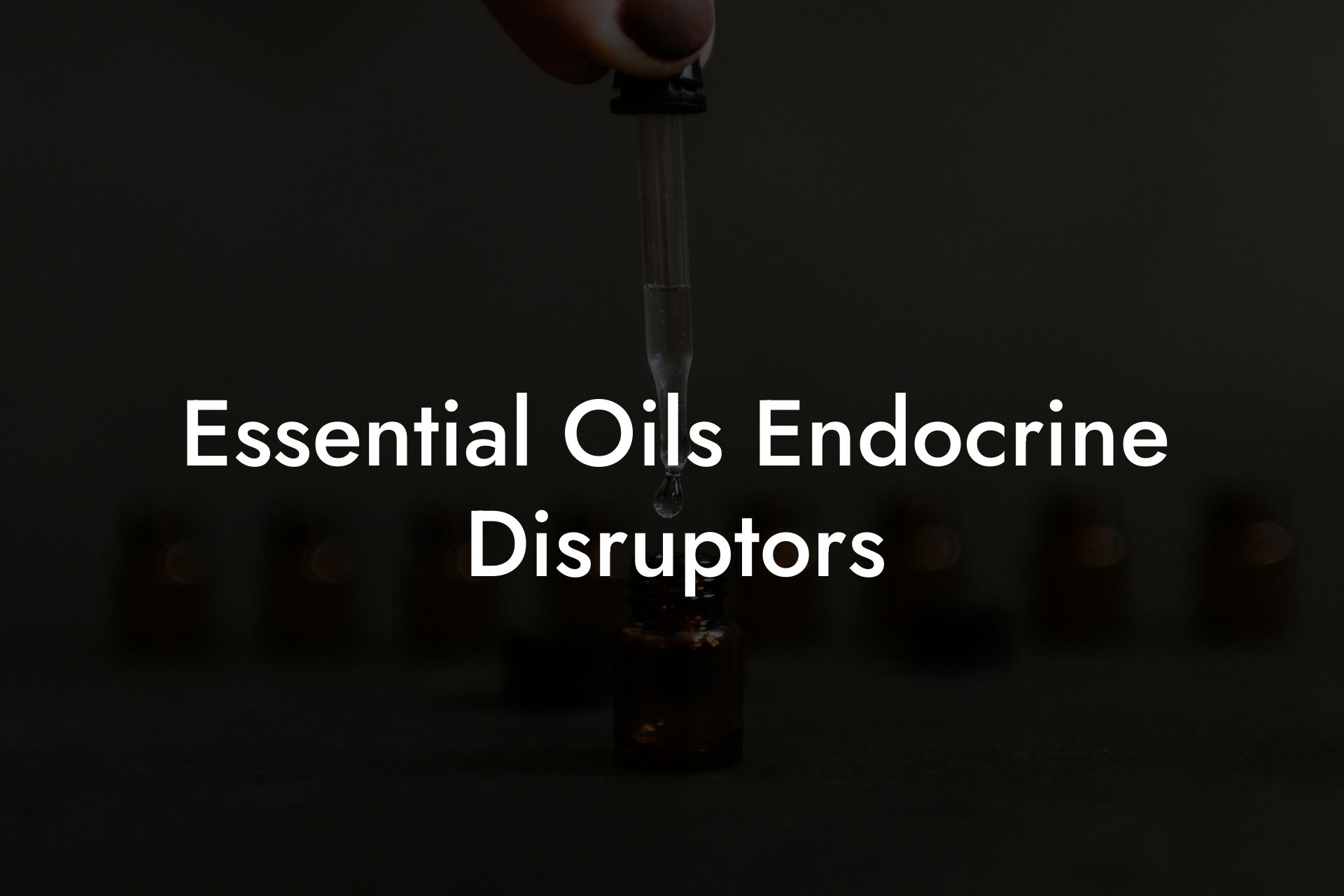Endocrine disruptors – the very term may evoke fear and confusion. But fear not, this article aims to dissect the topic of essential oils as endocrine disruptors and provide clarity for optimal wellbeing. Dive into the world of Oshu Oils to discover the science behind the buzzword and learn how to make informed choices when it comes to your essential oils journey.
Table of Contents
Understanding Endocrine Disruptors
Before delving into the relationship between essential oils and endocrine disruptors, it’s important to understand the basic concept. Endocrine disruptors are chemicals that interfere with the endocrine (hormone) system, potentially causing adverse health effects. They can mimic, block, or alter hormone production and metabolism, leading to imbalances and health problems such as reproductive issues, developmental disorders, and a variety of illnesses.
Essential Oils and Endocrine Disruption
Essential oils are highly concentrated plant extracts, offering an abundance of healing properties for various ailments and overall wellbeing. However, numerous research studies have suggested that some essential oils may exert endocrine-disrupting effects. Lavender and tea tree oils, for example, have been linked to gynecomastia (abnormal breast tissue growth) in prepubescent boys, indicating potential estrogenic (hormone-like) activity.
The Science Behind the Concerns
When discussing essential oils as endocrine disruptors, it’s crucial to acknowledge the limited studies available and the need for further research. Most existing studies have been conducted in vitro (in test tubes) or on animals, making it difficult to extrapolate results to humans. Additionally, the concentrations used in these studies often exceed realistic everyday use, making it unclear whether exposure to typical amounts of essential oils presents a genuine risk.
Mitigating the Risks
- Choose high-quality essential oils: Oshu Oils offers artisan essential earth oils produced under strict quality standards, ensuring the absence of synthetics, fillers, or adulterated substances.
- Adhere to safe usage guidelines: Dilute essential oils appropriately before applying them topically, and avoid overuse by alternating between different oils or blends.
- Consult a professional: Seek advice from certified aromacologists, like the ones at Oshu Oils, before incorporating essential oils into your daily routine, particularly if you have pre-existing health concerns or a history of hormone-related issues.
Essential Oils Endocrine Disruptors Example:
A case study of lavender and tea tree oils’ effect on gynecomastia in prepubescent boys showcases the potential risks associated with endocrine disruption. When used topically in undiluted form, these oils caused abnormal breast tissue growth, which subsided upon discontinuation of use. Subsequent in vitro studies found these oils to display estrogenic and anti-androgenic activity, implying potential hormonal disruption properties.
This case underscores the importance of using essential oils safely and responsibly by seeking expert guidance, choosing high-quality oils, and adhering to proper dilution guidelines.
Knowledge is power, and the world of essential oils should be enjoyed without fear. Although concerns regarding endocrine disruptors may be valid, responsible usage and informed choices can help mitigate risks and maximize benefits. Share this article with others who may be interested in essential oils, explore other in-depth guides on Oshu Oils’ blog, and reveal the full potential of Oshu Oils’ exquisite range of essential oils for your wellbeing journey.





















